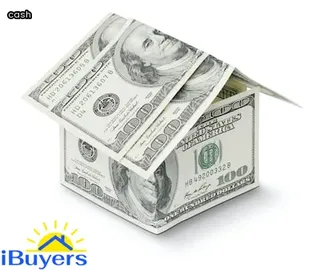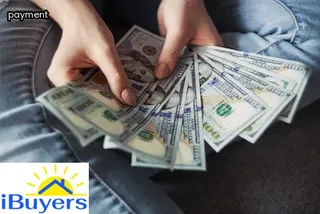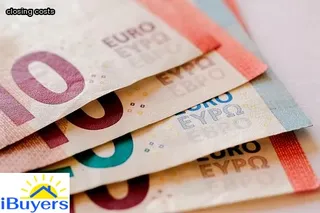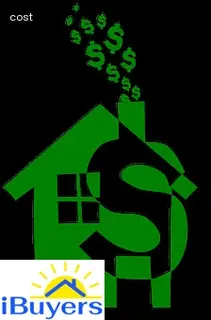Closing a real estate transaction can be an exciting but confusing process. Understanding cash to close is essential for all parties involved in order to ensure that the sale goes smoothly and all parties are satisfied.
Cash to close is the total amount of money that needs to be paid at closing, and it includes both closing costs and down payments. Closing costs are fees associated with the home purchase or sale that must be paid in order to complete the transaction, while down payments are what buyers pay upfront as part of their mortgage.
Knowing how these two items affect your cash to close amount is important when budgeting for a home purchase or sale. It's also important to understand any potential financing options that may be available in order to make sure you have enough money saved up for closing day.
Additionally, understanding what types of documents you will need on hand during the closing process can help ensure that everything runs smoothly and on time. Taking the time to understand cash to close can save you time, money, and stress during a real estate transaction.

Closing costs and cash to close are a common requirement for closing on a home. These fees can vary from state to state, along with the specific details of each transaction, such as different loan types or down payment amounts.
In general, closing costs are expenses that the buyer pays at the closing of a real estate transaction. These fees may include loan origination fees, appraisal fees, title insurance premiums, inspection fees and attorney’s fees.
Cash to close is the amount of money that must be paid in order to finalize the purchase of a home. This will include funds for closing costs plus any down payment amount required by your lender.
It is important for buyers to understand these requirements and budget accordingly before signing any paperwork so they don’t find themselves without enough money when it comes time to close on their new home.
When it comes to understanding cash to close, there are a variety of factors that can affect the amount you will need. The purchase price of the home is an obvious factor, as it will determine how much you will need in upfront costs.
Additionally, other costs such as loan origination fees, title search fees, appraisal fees and points may be included in your closing costs. The amount of your down payment can also impact the total amount due at closing.
Lastly, depending on your state and local regulations, taxes and insurance may also be included as part of your closing costs. Understanding these factors ahead of time can help you plan accordingly so you know exactly how much money you will need to prepare for closing day.

The Closing Disclosure is a document prepared by the lender that outlines all of the closing costs and payments associated with the purchase or refinance of a home. It provides a detailed summary of all of the fees, taxes, and other expenses associated with finalizing the transaction.
This document must be provided to the buyer three days prior to closing on the loan. The purpose of this disclosure is to ensure that buyers are aware of all fees charged before signing any documents and agree to these terms.
It also helps protect buyers from being subject to any hidden charges or unexpected fees at closing. Most importantly, it serves as a way for buyers to understand exactly what they need to know about cash-to-close expenses so they can be adequately prepared for their real estate closing.
When preparing for a cash to close payment, it's important to understand the closing costs associated with your purchase and to budget accordingly. Start by familiarizing yourself with the estimated closing costs you can expect to pay at the time of closing.
Knowing what you need in cash upfront will allow you to plan and save for this expense ahead of time. Be sure to also factor in any additional, non-refundable fees that may arise during the process such as prepaid taxes and insurance or loan origination fees.
Lastly, make provisions for any post-closing expenses that may come up such as homeowner’s association fees or escrow shortages. Doing some research ahead of time and understanding what costs will be due can help you better prepare financially for your cash to close payment.

Closing costs are the fees associated with closing the sale of a home. These can vary depending on the type of loan and other factors.
Generally speaking, typical closing costs associated with cash to close include appraisal fees, title search fees, credit report fees, title insurance premiums, recording fees, transfer taxes, and inspections. Additionally, there may be lender-specific costs such as origination fees or private mortgage insurance premiums that must be taken into consideration when calculating cash to close.
It's important to understand these costs to ensure you have enough money for your closing payments and don't come up short.
When it comes to understanding cash to close, there are many different payment options available for closing costs and cash to close. From a buyer’s perspective, the most important factor is affordability – making sure that you can make your closing costs payments without putting an undue financial strain on your budget.
There are several ways you can pay for closing costs: cash from savings or investments, borrowing money from family or friends, using a loan from a bank or other lender, using funds from your credit cards, or taking out a home equity loan. Each of these methods has its pros and cons, so it is important to carefully weigh each option before deciding how to pay for closing costs.
Understanding the differences between each type of financing will help you make an informed decision about which payment option best suits your current financial situation. Additionally, it is important to consider any applicable tax implications associated with each method of payment and whether additional fees may apply.

It is important for homeowners to understand the types of insurance they need to purchase when closing on a home. Homeowners insurance, or hazard insurance, is essential in protecting a homeowner’s investment and should be obtained prior to closing.
This coverage typically includes property damage like fire, storm damage, and theft; liability coverage in case someone is injured on the property; and additional living expenses in case of an emergency like a natural disaster. Depending on the loan terms and the lender’s requirements, mortgage lenders may require both an initial premium payment along with an escrow account set up at closing where a portion of each monthly mortgage payment will go toward paying for future premiums.
Homeowners should also consider additional optional coverage such as flood insurance if their new home is in an area prone to flooding or earthquake coverage if necessary. It is important for homeowners to discuss their specific needs with their insurance provider to ensure they have enough coverage for their property.
Paying cash to close is not the only option for closing costs and payments. There are alternatives such as financing, grants, and seller contributions that can help cover some of the costs associated with closing on a home.
Financing is one of the most common alternatives and can be done through a variety of lenders including banks, credit unions, and mortgage companies. Grants may also be available to qualified buyers in certain areas or to those who meet certain criteria.
Additionally, sellers may offer to contribute money towards closing costs if they are motivated to sell quickly or if they have an incentive to do so. Regardless of which option you choose, it is important to understand all of your options before making a decision about how you will pay for closing costs and payments.

Paying cash to close on a home purchase can be a great option for some people. Closing costs and payments are the fees associated with buying a house, such as taxes, title fees, and lender fees.
Cash to close is the amount of money you need to have available in order to purchase the home. Paying cash to close means that you do not need to borrow money from a bank or other financial institution in order to cover the closing costs and payments.
Paying cash eliminates interest rates, origination fees, and any other costs associated with taking out a loan. It also eliminates the need for monthly payments which can be beneficial for those who want to avoid getting into debt.
Additionally, paying cash can often result in more favorable terms from sellers because it allows them to complete the sale quickly and without worrying about whether or not you will qualify for financing. Ultimately, paying cash can save money over time due its lack of interest rates or loan fees and its ability to move through the process quickly while avoiding extra debt obligations.
When closing on a home, it's important to understand the cash to close amount and all of the associated costs. Estimating your personalized cash to close amount is key for budgeting and financial planning.
Start by gathering necessary documents such as bank statements, proof of funds, and other paperwork. If you're taking out a loan, it's important to know the total cost of the loan including closing costs and fees.
The lender will provide a Good Faith Estimate (GFE) that outlines these details along with a Loan Estimate (LE) that details how much you'll need to pay at closing. Remember to ask if there are additional fees or special taxes in your area connected to the purchase of your new home.
Lastly, review all documents carefully before signing any contracts and pay attention to any additional costs or fees that may be charged at closing.

When it comes to understanding closing costs and cash to close, the most important thing to know is how to calculate your personalized closing costs and balance. To calculate your closing costs and cash to close balance, you will need to consider several different factors.
First, you need to look at the loan amount that you are taking out, as well as any down payment you may be making. Then, you need to factor in all the fees associated with closing such as title insurance, attorney fees and inspection fees.
You also need to include taxes due at closing and any prepaid expenses like HOA dues or property taxes. Add up all these costs and subtract any deposits made towards closing from this total.
The final number is your cash to close balance - what you must bring on the day of closing.
Understanding the differences between a Loan Estimate and Closing Disclosure documents is an important part of knowing what you need to pay for closing costs. The Loan Estimate document provides an estimate of closing costs and other fees associated with the loan, as well as information on items required by the lender such as title insurance, appraisal fees, and other services related to the loan.
It also shows estimated taxes, insurance, and other expenses that may be due at closing. The Closing Disclosure document provides more detailed information about all the final costs associated with the loan, including principal balance, interest rate, mortgage payments, prepaids (like homeowners insurance), escrow account deposits (such as property taxes), transfer costs and any other fees that are due at closing.
Understanding Cash To Close requires understanding of the differences between these two documents in order to accurately calculate your total cash amount needed at closing.

When it comes to closing on a home, one of the most important things to remember is that you need to make sure you have enough funds for your cash to close balance. The cash to close balance is the amount of money that you will need to bring with you on the day of closing.
This amount will be determined by several factors, such as your loan type and the fees associated with closing. It also includes any down payment and closing costs that are due at the time of closing.
Knowing how much money will be needed for your cash to close balance ahead of time can help you avoid any surprises when it comes time for closing day. Before you start shopping for a home, it’s important to understand how much cash you will need in order to cover both your down payment and closing costs.
Make sure to factor in all potential fees so that you can ensure there won’t be any unexpected costs or delays during the process. Once you know what your total cash to close balance will be, then you can start budgeting in advance so that there won't be any last minute problems when it's time to sign on the dotted line and purchase your dream home.
When closing on a home, it is important to understand the tax implications of paying all-cash. Depending on the situation, there may be deductions available for taxes paid during the transaction.
For example, if you are using cash to pay for mortgage points and other loan-related fees, these may be deductible from your taxable income. In addition, depending on where you live and the laws in that jurisdiction, certain property transfer taxes may be deductible as well.
Generally speaking, it is best to consult with a tax professional and carefully review all closing documents before making a decision about whether or not to pay cash at closing.

Paying large sums of money at closing can have both advantages and disadvantages. On the plus side, paying a large amount up front can reduce the total amount of interest paid over time by eliminating or reducing the need for additional financing.
Additionally, it may be possible to negotiate a lower purchase price in exchange for a larger payment at closing. On the downside, it can be difficult to come up with such a large sum of money in cash, particularly if you need to borrow or liquidate assets to do so.
It's also important to consider any tax implications associated with such payments and make sure you're not risking too much of your long-term financial security in order to pay off an expense quickly. Ultimately, understanding all the options available and weighing the pros and cons carefully is key when deciding whether or not to pay large sums of money at closing.
When paying in full at the time of closing, it is important to understand all of the fees associated with the transaction so that you can avoid being surprised by any unforeseen costs. Closing costs typically include mortgage origination fees, appraisal fees, title insurance policies, and other third-party services.
Before making your final payment at closing, review your closing documents and make sure that all of the estimated costs are accurate. Ask your lender or real estate agent to explain any unfamiliar terms or expenses you encounter.
Additionally, if you are paying in cash for your purchase, make sure to obtain a receipt from the seller and check your bank account after the closing to ensure that all funds have been transferred correctly. Being aware of all potential fees associated with a purchase and carefully reviewing any paperwork you sign will help you avoid unexpected costs when making a full payment at the time of closing.
Closing costs and cash to close are two separate items when it comes to real estate transactions. Closing costs are the fees associated with a home purchase, such as title insurance, recording fees, survey fees and attorney's fees, while cash to close is the sum of money that must be paid at closing.
Closing costs are typically paid for by the buyer and can vary from one transaction to another depending on factors such as location and type of property. Cash to close is determined by subtracting the amount of any loan from the total cost of the home.
It is important for buyers to understand both closing costs and cash to close in order to effectively plan for their real estate purchase. Knowing what is included in closing costs and having an accurate estimate of how much cash will be required at closing can help buyers make informed decisions about their purchase.

When it comes to understanding cash to close, one of the most common questions is whether or not cash to close can be used for a loan. The answer depends on a few factors, such as the type of loan you're taking out and your financial situation.
Generally speaking, cash to close can be rolled into a mortgage loan in some cases. However, this is only allowed if you have enough equity in your home to cover the closing costs and other fees associated with the loan.
Additionally, some lenders may not allow this option due to the risk associated with it. If you do decide to finance your closing costs through a loan, make sure that you read all of the terms and conditions carefully so that you understand what you are agreeing to and how it will affect your monthly payments.
Understanding cash to close is essential in making sure that you are making an informed decision when buying or refinancing a home.
When a borrower's cash to close is negative, it means the closing costs exceed the amount of money they have available. This can be due to a variety of factors, such as unexpected fees or higher mortgage rates.
In order to make up the difference, borrowers may need to take out an additional loan or line of credit. They may also need to come up with additional funds from other sources, such as their own savings or liquid assets.
It is important for borrowers to understand what cash to close means and how it could impact their finances when it becomes negative. Knowing this information ahead of time can help them make more informed decisions about their closing costs and payments.
When you close on a home purchase, you may receive cash back at closing. This is because of the way closing costs and down payments are calculated.
Closing costs are typically paid by both the buyer and seller, although there are times when the seller will pay all of them or the buyer pays more than their share. If you calculate your down payment as being greater than what is actually due at closing, then you will receive cash back.
This can be due to credits from the seller for repairs or other items that lower your total closing costs owed. Knowing why you are getting cash back at closing can help you better plan for future expenses after moving into your new home.
A: Cash to close refers to the amount of money a home buyer must pay at closing to complete their real estate transaction. This includes the down payment, closing costs, and any prepaid expenses such as homeowner's insurance and property taxes.